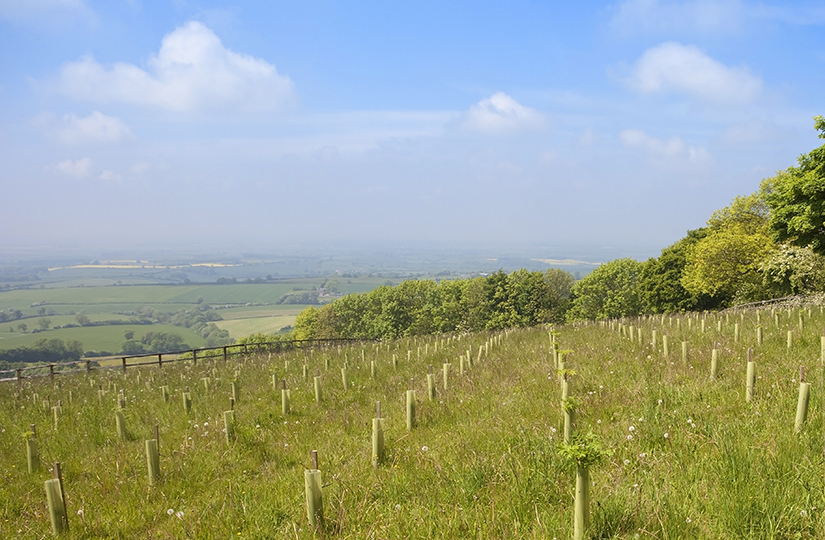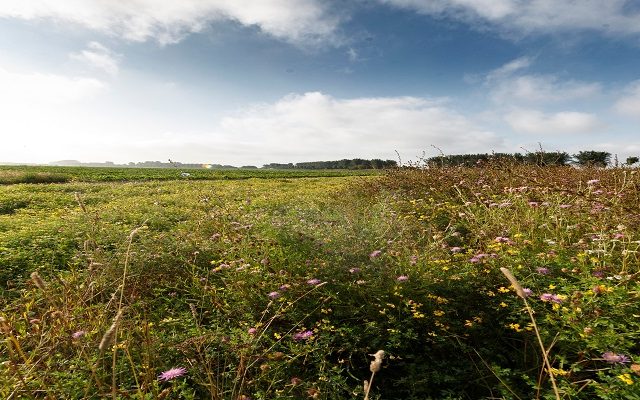Land Business Update Week Commencing 24th May 2021
Update on key land management, farming, planning, forestry and energy issues for week commencing 24th May.
LUMP SUM, DE-LINKING, THE ENGLAND TREE ACTION PLAN & PEATLAND STRATEGY
It is a big week for government announcements and so we start a bumper edition with a big section on them:
Lump sum exit scheme payment – how does it stack up?
Defra has announced some details of how farmers can convert the Basic Payments they would have received until 2027 into a one-off lump sum. The proposal is to pay farmers 2.35 times the average of the BPS payment across 2018-20 (adjusted for subsequent transfers out of entitlements), with a payment cap of £100,000. Our calculations show that farms over 182ha will be affected by the cap. For a farm of this size, the lump sum payment equates to £549/ha, compared with £622/ha if payments were taken over 2022 to 2027. This means the farmer would receive £13,341 or 12% less from taking the lump sum. Or put another way, they would lose most of the payments they were due to receive in 2026 and 2027. We have produced a calculator to do the comparison so please contact Jonathan Armitage if you would like to run your farm through it for free or to discuss lump sum in general.
De-linking
Remaining Basic Payments will be ‘de-linked’ from land from 2024 and will be based on a reference period, which is yet to be announced. Applicants must have been farming up to the end of 2023 to be eligible.
England Tree Action Plan
The land managing sector has been waiting for the government to publish its strategy for tree planting and forestry for a very long time. It was finally published in mid May and it feels like there is lots in it that is positive, including addressing significant challenges and structural issues in the sector, such as the (un)attractiveness of tree planting to land owners, reducing the complexity of applying to plant trees, bringing more unmanaged woodland into management and reducing the UK’s massive dependence on imported timber.
However, the document raises a number of important questions: it feels like a lot remains to be agreed or to be consulted on or piloted, which is very disappointing given the urgency of action needed and time this plan has been worked on; it is unclear how the plan will be monitored and evaluated; we don’t understand why is the plan is so short-term (2021 – 2024); there is little or no mention of the challenge of most farmers – who manage most of the land in England– defining themselves as farmers and not foresters.
One of the headline announcements is that the government has kept its main target of 30,000 ha of new tree planting per year by 2025 but it has reduced its ambition for planting in England – from 10,000 ha a year to 7,000 ha by the end of this Parliament in 2024 – but with no note that the target has been reduced or why. The majority of planting is expected to happen in Scotland, which will mean a doubling of new planting from 11,000 hectares in 2019/20 to roughly 22,000 by 2024. NB And don’t forget that 30,000 hectares a year will have to increase to 50,000 by 2035 if the UK climate targets are to be met.
Woods into Management Forestry Innovation Funds (England only)
This new grant aims to address the issue that 41% of woods are not actively managed by helping to overcome the barriers. It aims to create routes to market for ash timber; fund temporary infrastructure to access woods; and regional woodland restoration – whatever that means as the details are apparently to be to finalised.
Peatland Strategy
The peatland strategy has also been long awaited like the tree strategy. Initial reaction to it, particularly by environment organisations, has been muted to say the least. It commits £50m towards the restoration of 35,000 hectares of degraded peat bogs in England by 2025; while a large amount of money, 35,000 ha is about 1% of the UK’s total peatland and most of the peatland is in poor condition and so emitting, not storing, greenhouse gases (se article below). Also, the £50m was previously committed. Friends of the Earth have said the plans to phase out the burning of peatland were “vague” and “short term”. However, the plan to ban sales of peat products by the end of this Parliament has been welcomed, although it is subject to consultation.
ENVIRONMENT
Peatlands need urgent attention, says British Ecological Society
This comprehensive and timely report says that lack of investment and proper management has lead to peatlands becoming major emitters of greenhouse gases while they should be huge, long-term stores of carbon. It is estimated that much of the UK’s 2.6m hectares of peatlands are in a poor condition and could be emitting 23m tonnes of carbon equivalent each year, which is about half the emissions from farming. In the week that the government finally releases its peatland strategy, the report calls for large-scale government support for restoration and management, better environmental governance regimes and a framework for assessing the benefits and trade-offs of different schemes. The report also noted that much better data is needed on carbon sequestration rates for peatland and other habitats if truly effective markets for trading carbon credits can develop.
Natural capital: what’s it all about?
Read our article in the Agronomist and Arable Farmer magazine on why data-based decision making will be critical to successful farm businesses.
The hidden costs of fighting climate change – a thoughtful article by Paul Johnson
Paul Johnson is director of the Institute of Fiscal Studies and a member of the Committee on Climate Change. He is always considered and worth listening to. Despite what you might read on how much the UK’s carbon emissions have been cut since 1990, the key statistic is that our carbon footprint, measured by consumption, has barely changed since 1990. Our domestic emissions may have fallen but that is because we produce less in the UK and import more – lots from China – so our emissions by consumption have remained largely the same. Johnson’s key message is that to get to zero emissions, we are all going to have to change our behaviour, which is something that has not happened to date. This will mean electric cars, switching from oil and gas boilers, probably eating less meat and flying less. It will not be easy.
Minimum Energy Efficiency Standard (MEES) likely to be increased to B for non-commercial property
The government, positively, is trying to set a long-term trajectory for improving the energy efficiency of all buildings. Following strong support for doing this in a consultation in 2019, it is now consulting on the framework to do it and how to improve compliance and enforcement of the MEES. The key points being consulted upon are:
- a phased implementation of the EPC B requirement by 2030, with an interim step of EPC C by 2027. There could be new two year ‘compliance windows’ for landlords to register EPCs for their buildings that meet the new requirements in the two years before the 2027 and 2030 deadlines. E.g., a compliance window of 2025 – 2027 for EPC C.
- a move away from enforcement at the point of letting, part of which is an exemptions and compliance database to enable local authorities to more rigorously enforce MEES.
To discuss this or how MEES applies to homes, please contact Alice Robinson. Her latest blog on common MEES scenarios is here.
ECONOMY AND PROPERTY
Queens Speech includes Planning Bill, Environment Bill (again!!!) and Leasehold Reform Bill
The government has proposed 31 bills as its legislative programme for the next year. The main ones that affect rural people, places and property are:
- Planning Bill – which the government claims will lead to the biggest changes to the system in decades. It includes the government being able to remove the power from local planning authorities to turn down housing developments if they meet set standards It will be controversial with MPs fearing that it could allow large new developments against the will of local people.
- Environment Bill – this may finally be passed after a number of false attempts and (according to many environmental bodies) lack of government will. Key issues are how strong will post-Brexit environmental standards be and how much independence and ‘bite’ will the new environmental regulator have.
- Leasehold Reform Bill – which will add to existing rules and restrict the amount freeholders can charge in ground rent.
- Skills and Post-16 Education Bill – which will create a new right to government-funded training for all adults lacking A-levels or the equivalent. It could also introduce four years’ worth of loans for training or education for all adults that can be taken at any age.
- Subsidy control Bill – this will establish a UK state aid regime and set up a new independent body to determine when government intervention breaches the terms of the trade and co-operation agreement with the EU.
Why the best farmland in Britain has become cheap
While it is probably not the headline we would have chosen, we were delighted that The Economist magazine used our data for its recent article on the farmland market (you can read the article if you provide your email address). Please contact Matthew Sudlow, our head of farm agency, if you would like to talk about the land market.






